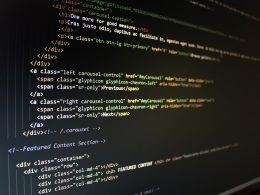The early days of programming were characterized by the use of binary code, which is a system of coding that uses only two digits, 0 and 1. Binary code is the most fundamental form of computer language and represents the foundation of all modern programming languages. The use of binary code was prevalent in the first generation of computers, which were large, bulky, and expensive.
The second generation of computers brought about significant changes in programming. The birth of programming languages such as Fortran, COBOL, and Pascal made coding easier and more accessible. These languages were developed to make it easier for programmers to write code using a more human-friendly syntax. They allowed programmers to perform complex operations with ease, such as arithmetic, logic operations, and input/output processing.
The third generation of computers saw the advent of object-oriented programming (OOP), which is a way of programming that organizes data and code into reusable and modular objects. OOP was a huge improvement in programming as it made coding more structured, efficient, and easier to maintain. It allowed programmers to create complex applications and systems more quickly, and it brought about a new era of software development.
The fourth generation of computers marked the beginning of a new era in programming – the era of AI. AI programming involves the use of complex algorithms, machine learning, and natural language processing to create intelligent systems that can communicate, learn, and adapt to new situations. This type of programming is used in areas such as robotics, speech recognition, and predictive analytics.
Today, we are in the era of fifth-generation computing, which is characterized by the development of quantum computing, AI systems that use deep learning, and the use of blockchain technology. These technologies are changing the face of programming, making it more collaborative, secure, and efficient.
The evolution of programming has had a profound impact on our lives. It has enabled us to automate tasks, communicate efficiently, and access information at unprecedented speeds. It has also brought about significant changes in the way we work, learn, and interact with each other.
In conclusion, the evolution of programming is a testament to human ingenuity and creativity. It has transformed the world in ways that we could have never imagined. From the simple binary code to the complex algorithms of AI, programming has come a long way, and its evolution is far from over. It will continue to shape our future, and we can only imagine what new innovations and breakthroughs will come our way in the years to come.









